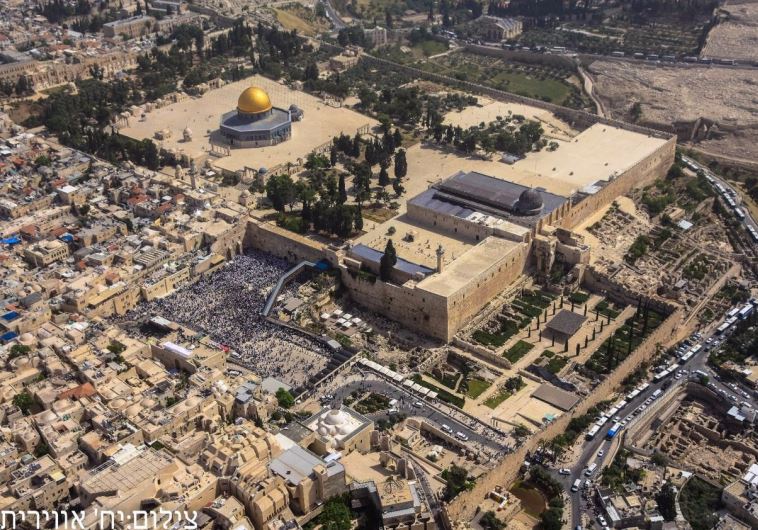Israel and European allies working to stop UNESCO from ignoring Jewish ties to Temple Mount
Palestine began its attempt to reclassify Judaism’s holiest site as exclusively Muslim in October of last year.
 Aerial view of Temple Mount(photo credit: ISRAEL POLICE)Updated:
Aerial view of Temple Mount(photo credit: ISRAEL POLICE)Updated: